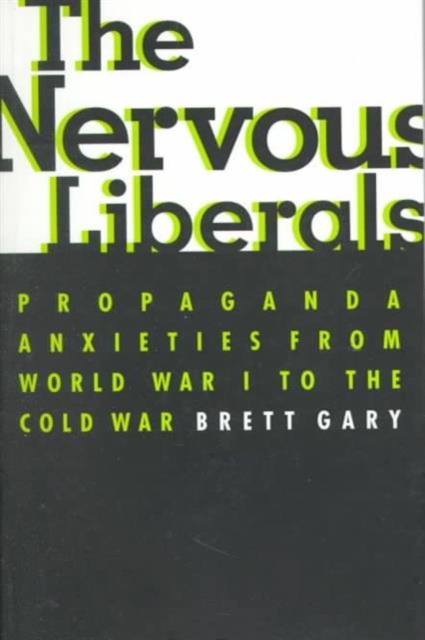
The Nervous Liberals : Propaganda Anxieties from World War I to the Cold War Paperback / softback
by Brett (Steinhardt School of Culture, Education, and Human Development) Gary
Part of the Columbia Studies in Contemporary American History series
Paperback / softback
Description
Today few political analysts use the term "propaganda." However, in the wake of World War I, fear of propaganda haunted the liberal conscience.
Citizens and critics blamed the war on campaigns of mass manipulation engaged in by all belligerents.
Beginning with these "propaganda anxieties," Brett Gary traces the history of American fears of and attempts to combat propaganda through World War II and up to the Cold War.
The Nervous Liberals explores how following World War I the social sciences-especially political science and the new field of mass communications-identified propaganda as the object of urgent "scientific" study.
From there his narrative moves to the eve of WWII as mainstream journalists, clerics, and activists demanded greater government action against fascist propaganda, in response to which Congress and the Justice Department sought to create a prophylaxis against foreign or antidemocratic communications.
Finally, Gary explores how free speech liberalism was further challenged by the national security culture, whose mobilization before World War II to fight the propaganda threat lead to much of the Cold War anxiety about propaganda. Gary's account sheds considerable light not only on the history of propaganda, but also on the central dilemmas of liberalism in the first half of the century-the delicate balance between protecting national security and protecting civil liberties, including freedom of speech; the tension between public-centered versus expert-centered theories of democracy; and the conflict between social reform and public opinion control as the legitimate aim of social knowledge.
Information
-
Available to Order - This title is available to order, with delivery expected within 2 weeks
- Format:Paperback / softback
- Pages:332 pages
- Publisher:Columbia University Press
- Publication Date:20/10/1999
- Category:
- ISBN:9780231113656
Information
-
Available to Order - This title is available to order, with delivery expected within 2 weeks
- Format:Paperback / softback
- Pages:332 pages
- Publisher:Columbia University Press
- Publication Date:20/10/1999
- Category:
- ISBN:9780231113656










